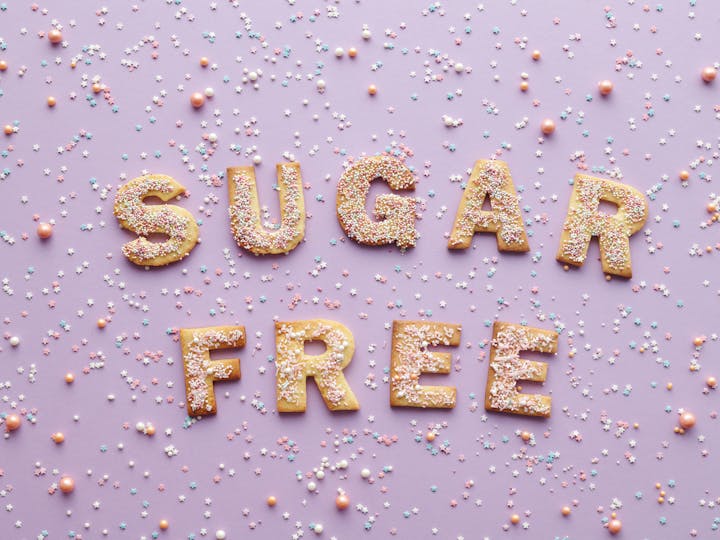Reducing sugar doesn’t mean you must say goodbye to sweet things forever. You can still make delicious baked goods that are sweet and enjoyable without using artificial or traditional sugar altogether. Whether trying to be more diligent with your blood sugar or changing your eating habits, there are various ways to sweeten your baked goods without artificial flavourants like sucralose or aspartame.
What’s even better is that these alternatives are also natural. If you’re keen to get rid of refined sugar and trade it out for something more natural, here are five natural options to keep your cakes, muffins, and cookies tasting sweet and enjoyable.
1. Stevia
Stevia has been used as a substitute for sugar by bakers all over the world for years now. The Stevia plant is part of the Asteraceae family and is related to other plants like the daisy and ragweed. One of the defining characteristics of Stevia is that it’s around 200 times sweeter than refined sugar, meaning that you only need to use a fraction of it for your baked goods. Some of the key benefits of using Stevia are that:
- It has zero calories
- Doesn’t spike blood sugar levels
- It’s safe for diabetics
- It’s heat stable
Something to keep in mind about Stevia is that it can give you a slightly bitter aftertaste if you overdo it, especially if you’re using it with lighter recipes like bread or sponge cake. What helps here is to pay stevia with another natural sweetener. This should provide you with a better balance.
2. Monk Fruit
Also known as luo han guo, Monk fruit is a small melon from China. Its extracts are naturally sweet without any sugar added. It’s free from calories and carbs, and also, according to some research, helps regulate the sugar levels in your blood. More research is needed to confirm this, though. Monk fruit also contains antioxidants like mogrosides, which are known to help with inflammation. Here are some of the common benefits of using monk fruit:
- It doesn’t give you a weird taste
- Also has zero calories and carbs
- It’s heat stable
Once again, you’ll often find monk fruit mixed with other sweeteners like erythritol to make it easier to measure and bake with. If you plan on using it alone, make sure you use it in small amounts, as monk fruit is lovely.
3. Coconut Sugar
If you’re looking for a substitute closer to the real deal, then coconut sugar is your choice. Also called coconut palm sugar, this sugar is made from the coconut palm sap, the sugary fluid found in coconuts. The key difference between coconut sugar and other processed sugars is that the latter don’t contain any nutrients, while coconut sugar does. It has a malty-brown sugar flavour and can be used in the same ratio as normal sugar. Here are some of the benefits of coconut sugar:
- It has a rich, caramel-like flavour
- It’s a 1:1 substitute for sugar
- It contains trace amounts of minerals like zinc and iron
One thing to note is that coconut sugar doesn’t melt or dissolve like sugar usually does. Because of this, it’s better in dense recipes like muffins, brownies, or banana bread. Also, it’s still considered sugar, so it’s not precisely calorie-free, but it is much healthier than regular sugar.
4. Date Paste
Date paste is another alternative that’s packed with fibre and nutrients. Made by blending pitted dates with a little bit of water until it turns into a smooth paste, you’ll find a decent amount of natural sugar and minerals like potassium, magnesium, and antioxidants in this paste, making it a healthy choice to opt for. The general benefits of date paste include:
- Whole-food based sweetener
- It adds moisture and richness to your recipe
- It’s great for brownies and muffins
Date paste is sticky and thick, which makes it better for recipes that need moisture. It also takes some time to get the hang of date paste. Play around with ratios to find the right balance when baking.
5. Vegetable Glycerine
You may not have heard of vegetable glycerine as a sweetener, but it’s often used to add flavour to a recipe. VG is a clear, odourless, slightly sweet liquid that comes from plant oils. It’s perfectly safe to add to food when you purchase the food-grade product. These are some of the benefits of VG:
- Mild sweetness with no aftertaste
- It doesn’t spike your blood sugar levels
- It can also be used as a sugar-free base for flavoured syrups and other DIY products
VG isn’t as sweet as sugar, but it is a good ingredient to combine with another sweetener to balance out the flavour and make it more consistent. It’s a great addition to recipes like keto brownies and protein bars to avoid them becoming dry and moistureless.
Most of the other alternatives above can be bought at your local store. However, you may need to do some research to find vegetable glycerine. If you’re looking to buy VG, Universal Flavours offers it amongst their vast range of flavours and other ingredients you’d like to try.
Final thoughts
Finding alternatives to refined sugar may seem like a struggle, and you may be sceptical about how these things may make your delicious delights taste. But what do you have to lose? If your baked goods don’t taste sweet enough by the end, you can always use your normal methods again. With that in mind, experiment with these five natural alternatives a bit. Who knows, you might find one that works perfectly for you.





